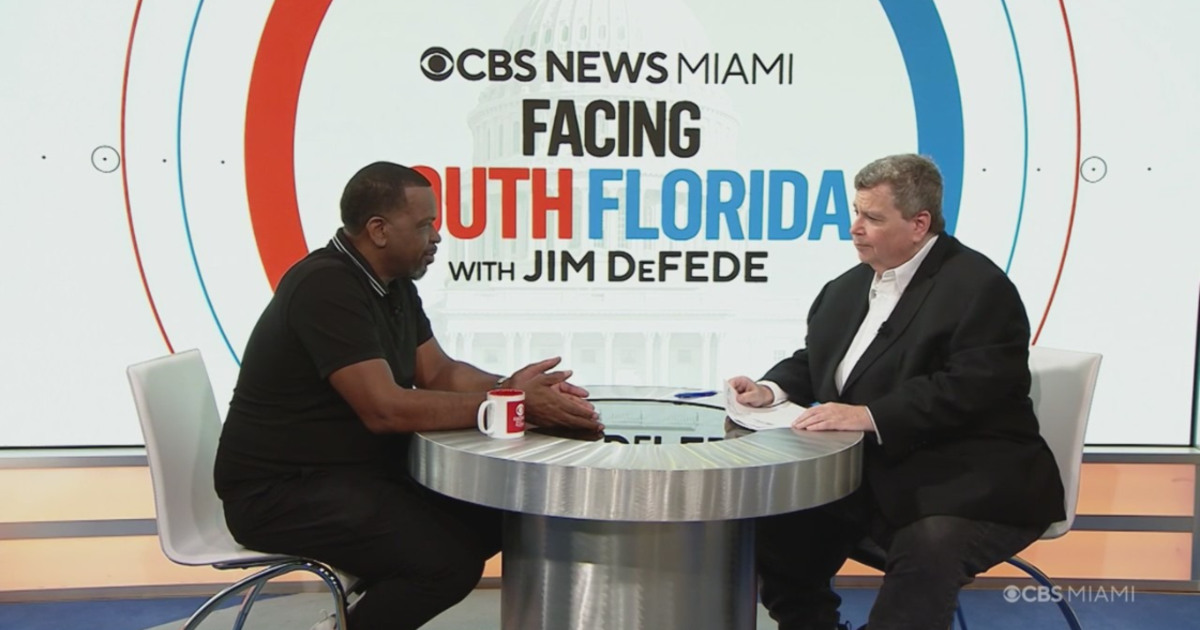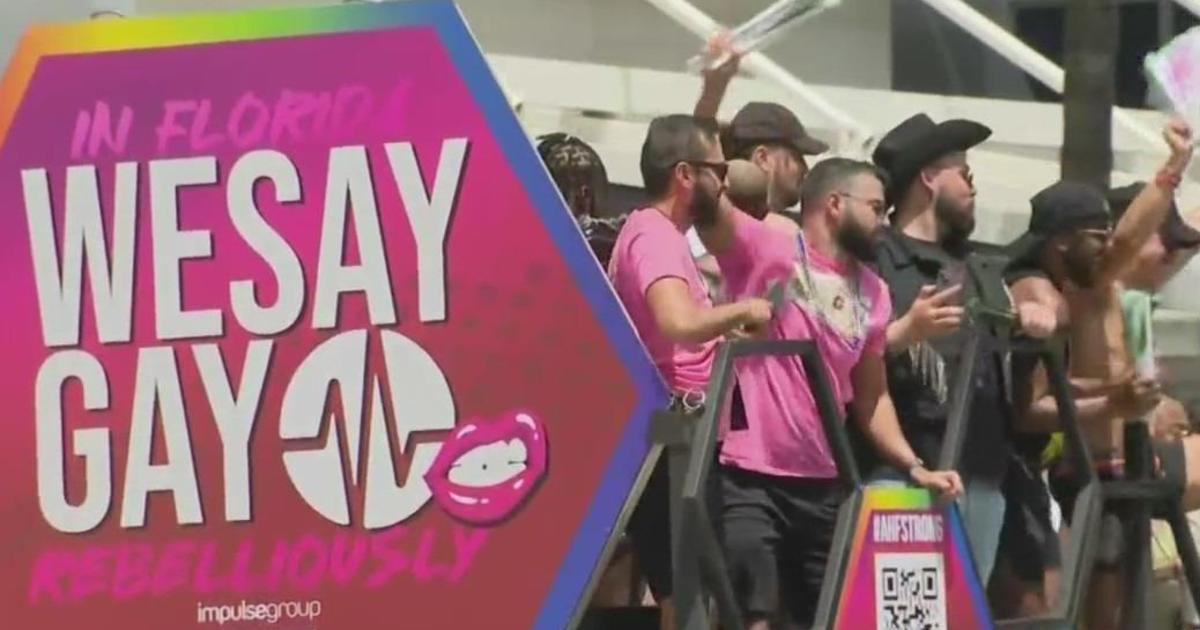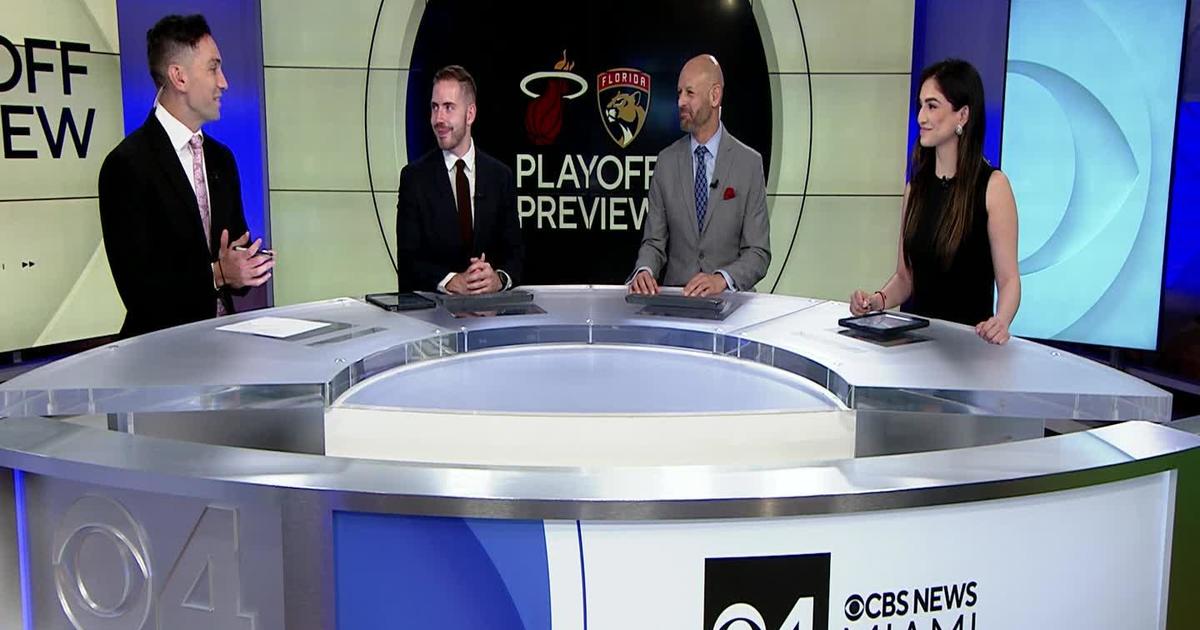Bills Would Allow Craft Distillers To Sell To The Public
MIAMI (CBSMiami/AP) – Craft rum, gin and other liquors have become very popular over the last few years.
While they are becoming more readily available in restaurants, bars and retail stores, the one place they can't still can't be purchased in Florida is at the distillery itself to visitors who walk in for tours and tastings.
Under state law, distillers are bound by post-Prohibition regulations that individually license manufacturers, distributors and retailers. The Legislature is considering proposals that would give craft distillers an exception, the same one enjoyed by small wineries and brew pubs, to the three-tier system. The exception would apply only to distillers making 75,000 gallons a year or less.
Florida's Retail Beverage Council opposes the bills because they would create another exception to the three tiers, said Scott Dick, the group's lead lobbyist.
Granting exceptions for wineries and brew pubs was a mistake, Dick said, and giving craft distillers a similar exception would take business from distributors and retailers.
Supporters of the legislation say it would benefit distributors and retailers in the long run while giving distillers another way to promote their brands.
"They'll likely buy the first bottle from us, but the rest they'll likely buy from a major retailers, because what are the chances of a guest coming back to St. Augustine from Orlando or Miami?" said Phil McDaniel, chairman of the board of directors for the 15-member Florida Distillers Guild. He is working to open a whiskey, gin and rum distillery this year in St. Augustine.
State Rep. Ronald Renuart, R-Ponte Vedra Beach, who introduced the House bill, said the legislation could attract tourism, create jobs, and boost Florida agriculture as distilleries expand and buy local ingredients.
"There's a lot of these craft distilleries around the state that are using Florida items such as citrus to flavor their liquors. These are truly Florida-manufactured products. We should encourage them to be successful," Renuart said. "In the long run, if people favor products made in Florida, they'll go to their local package store and ask for them. And who supplies the package store? The distributors."
But his bill appears to be a tough sell. The Business and Professional Regulation Subcommittee nearly killed it Tuesday with a 7-6 vote against, but it also decided to reconsider the bill and then took no more action. The bill was opposed by alcohol distributors and the Florida Retail Federation.
Renuart and McDaniel said the bill may be reworked to include limits on the numbers of bottles sold to individuals at distilleries.
McDaniel points to other states such as Louisiana, South Carolina, Oregon, Washington, Delaware and Colorado that have embraced some on-site sales for craft distillers, who are capitalizing on a nationwide revival in heritage and handmade products. Indiana legislators also are considering a bill that would allow farm wineries and microbreweries to sell spirits distilled on the premises.
"It didn't strike me that (the distributors) necessarily recognized that every year that Florida delays, we're losing market share to other states," McDaniel said. "Craft spirits will take off in Florida — unfortunately, they just won't be made by Florida companies."
The bills affecting craft distillers are among a handful of alcohol-related bills being considered in the Florida Legislature this year. One would let craft brewers sell beer in 64-ounce growlers, and another would legalize wine kegs, allowing retailers to dispense wine by the glass without having to open individual bottles.
According to Florida's Division of Alcoholic Beverages and Tobacco, beer generated $174 million in tax revenue in the last fiscal year, compared with $210 million in liquor tax collections. Wine made in Florida generated $1.1 million in tax collections, compared with $139 million generated by wine imported into the state.
Florida doesn't distinguish craft spirits from other liquors, but those distillers likely produce a small but growing fraction of the state's overall alcohol volume.
According to the Distilled Spirits Council of the United States, the distilled spirits industry grew for the third consecutive year in 2012, capturing more than a third of the alcoholic beverage market and seeing supplier sales increase by 3 percent in volume to 202 million cases. The volume produced by craft distillers nearly doubled from 700,000 cases in 2010 to 1.2 million cases through the third quarter of last year.
Matt Malone of Miami Club Rum says he's not interested in jeopardizing the distribution deal that has put his white rum on prominent shelves just four months after coming to market. If the legislation passes, he said he would plan to buy Miami Club Rum back from his distributor, Southern Wine & Spirits, to resell to tourists at his distillery.
He sympathizes, though, with distilleries struggling to find distribution. Visitors to his arts district distillery where Miami Club Rum is aged and bottled listen to upbeat music while sipping cocktails that feature his white rum.
They also get directions to the nearest liquor store that sells the rum, about a dozen blocks away, because it can't be sold on site.
"There's a sense of disappointment when a client walks in here and takes the tour, which hundreds and hundreds of people have done, and they ask me to buy a bottle and I have to tell them no," Malone said.
(TM and © Copyright 2013 CBS Radio Inc. and its relevant subsidiaries. CBS RADIO and EYE Logo TM and Copyright 2013 CBS Broadcasting Inc. Used under license. All Rights Reserved. This material may not be published, broadcast, rewritten, or redistributed. The Associated Press contributed to this report.)



